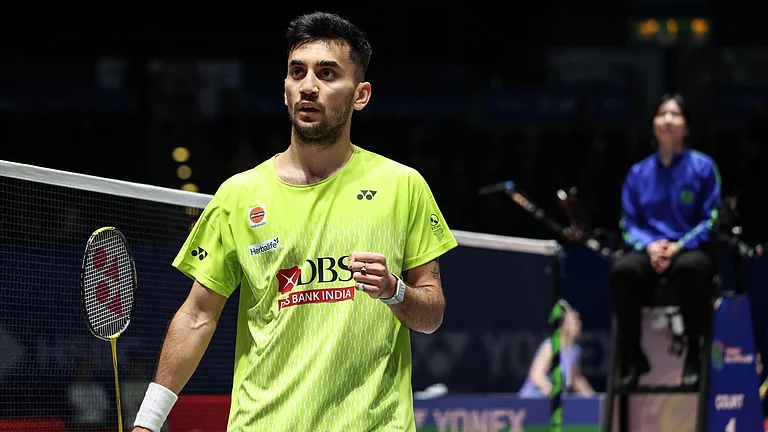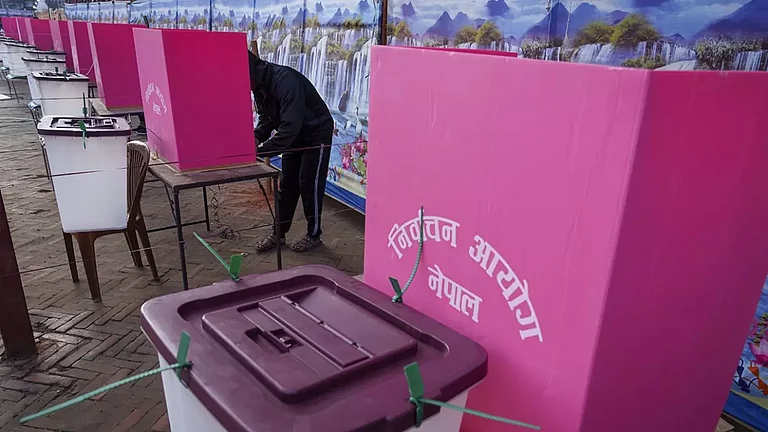Of the tribal population of 104 million in India, 20 million are children aged between zero and six who suffer from disproportionately higher levels of undernutrition as compared to other children. The National Family Health Surveys, the Comprehensive National Nutrition Survey 2016-18 and the reports of the expert committee on tribal health indicate that tribal women and children suffer from a high rate of undernutrition.
These findings are symbolic of a larger problem with long-lasting effects as malnutrition among under-fives affects their cognition, learning ability and even lifelong learning. Given that tribal children are more susceptible to multiple forms of undernutrition than the other groups, it is imperative for India to address their nutritional challenges for the country to accelerate its development journey. Generations of tribal people run the risk of staying deprived of equal opportunities if the system does not act with urgency.
Here is an eight-point package of interventions that could help improve the nutrition status of tribal children —
Strong preconception care: Over 40 per cent of tribal women have various degrees of chronic energy deficiency with about 13.2 per cent falling in the severe category. Early care—preconception phase—to ensure a healthy mother and child, until the child is two years of age, the 1,000 days—pregnancy to age two—approach, will address undernutrition in future mothers and prevent onset of stunting in their children. Comprehensive preconception care through Anganwadis in tribal areas will encourage early registration of pregnancies, promote correction of nutrition gaps and provide adequate time to correct the onset of stunting.
Anthropometric drive and tele-nutrition consultation: Many tribal habitations are remote and completely cut off during specific seasons. Implementing an anthropometric drive, in coordination with the triple-A (Accredited Social Health Activist or ASHA worker, Anganwadi worker and Auxiliary Nurse Midwife or ANM), identifying malnourished children, followed by teleconsultation with specialists to create a plan for each child, will go a long way in management of malnutrition, especially among severely and moderately acute malnourished children. The same can also provide service to pregnant and postnatal mothers with a low body mass index and anaemia.
Enhanced dietary diversity with regional nutrition kits: An unpublished study conducted by the Piramal Foundation on the tribal people living in Andhra Pradesh’s Araku valley revealed that average diet diversity score was as low as 3 out of 10. A regional nutrition kit comprising diet chart and growth stickers, handout on the six steps of hand wash, self-monitoring tools and ready-to-eat nutri-basket, made of locally made nutrient-dense foods, can be made available through Anganwadis and can serve as a model for replication at household level.
Community-led nutri-gardens, nutri-hubs and nutri-kitchens: Hidden hunger, deficiency caused by food low in vitamins and micronutrients, is a major nutrition challenge in tribal communities as their diets lack diversity. Tribal households depend on homegrown foods and nearby forests for 50 per cent of their daily requirement of food and data shows that the percentage adequacy for fats and micronutrients was below 60 per cent of the recommended daily allowance. To address this, micronutrient-rich indigenous local produce—primarily iron-rich dark green leafy vegetables, Vitamin C-rich citrus, Vitamin A-rich vegetables and fruits—can be grown in community-led and community-managed nutri-gardens near Anganwadis while allowing for diversification of supplementary foods provided at Anganwadis. Providing specific kitchen equipment such as a solar drier and mixer grinder can serve as a simulation centre (nutri-hub) through which tribal peoples can learn and replicate simple nutri-dense indigenous recipes, conservative methods of cooking and food preservation techniques.
Mobilising federations of tribal self-help groups: Catalysing members of tribal self-help groups to review health and nutrition status, grow kitchen gardens, adopt low-cost food recipes and refer malnourished and at-risk children and pregnant mothers to health facilities will create a sustainable model of community management of undernutrition. This can be leveraged to create nutrition-based livelihood activities to improve nutrition status as well as provide financial support to families.
Engaging faith leaders and tribal healers: Engaging faith leaders and tribal healers, who are local influencers, can help reinforce the right nutrition messages such as early initiation of breast feeding, exclusive breast feeding, timely initiation of complementary feeding, immunisation, avoiding child marriage, early registrations of pregnancies, full antenatal care and bust myths and misconceptions related to health and nutrition to address related challenges in tribal areas.
- Community-based management of severe acute malnutrition: Only 10 per cent of symptomatic severe acute malnutrition cases require facility-based management, while others can be managed at community level. Community-based initiatives to manage malnutrition by offering a package of nutrition services at habitation level as per the national-level guidelines will gradually enable children to move from severe undernutrition to moderate undernutrition to normal nutrition. This nutrition services package includes:
- Linking the child to the ANM for a five-day antibiotics course to correct underlying infections.
- Delivering nutrition interventions, including catch-up diet promotion and distribution (locally made supplementary nutrition), for three months.
- Regular and frequent growth monitoring and diet counselling for three months.
- Linking the child to the Integrated Child Development Scheme (ICDS) supplementary nutrition services for double ration.
- Ensuring paediatric iron and folic acid tablets, vitamin A prophylaxis, zinc supplementation, bi-annual deworming, complete immunisation, oral rehydration solution for dehydration and counselling on feeding practices.
- Special feeding drives, household nutrition garden, nutri-dense recipe demonstration and water, sanitation and hygiene practices.
Strengthening service delivery: Quality nutrition service delivery necessitates coordination between ministries and departments at sub-block level, block level and district level as well as among tribal communities themselves. This convergence is crucial to ensure implementation of regular and quality services, need-based supplementary nutrition support for undernourished tribal mothers and children, and distribution of take-home ration by self-help groups for smaller tribal habitations without an Anganwadi centre.
Combating undernutrition amongst tribal children is complex and requires a whole-system and whole-community approach. Early care of future mothers, addressing diet diversity, encouraging community-owned nutrition and community-based management of nutrition, mobilising self-help groups and influencers, and strengthening service delivery through convergence, drives and tele-consultations will build a generation of healthy children in the tribal population and give them an opportunity to pursue education, earn a livelihood and realise their full potential in life.
(Dr. Swati Piramal is the Vice Chairperson of the Piramal Group, a global business conglomerate with interests in pharmaceuticals, financial services and real estate. A Padma Shri awardee, she is amongst India’s leading scientists known for providing cost-effective and science-based healthcare. As Director of Piramal Foundation, she is deeply involved in developing innovative long-term and scalable solutions to resolve issues that are critical roadblocks towards unlocking India’s economic potential.
Dr. Shailendra Hegde is a medical doctor with specialisation in public health and preventive medicine and has rich experience in managing large healthcare programmes. At Piramal Foundation, Dr. Hegde leads the multistakeholder tribal health collaborative, Anamaya, to address primary health care challenges among tribal communities in India.)

















